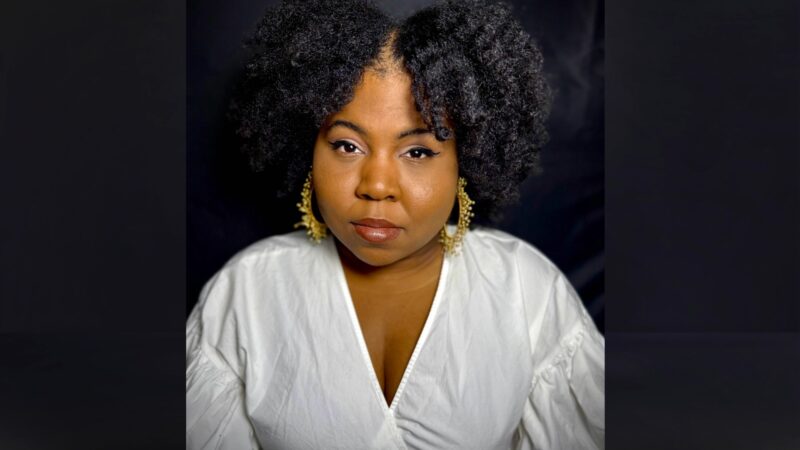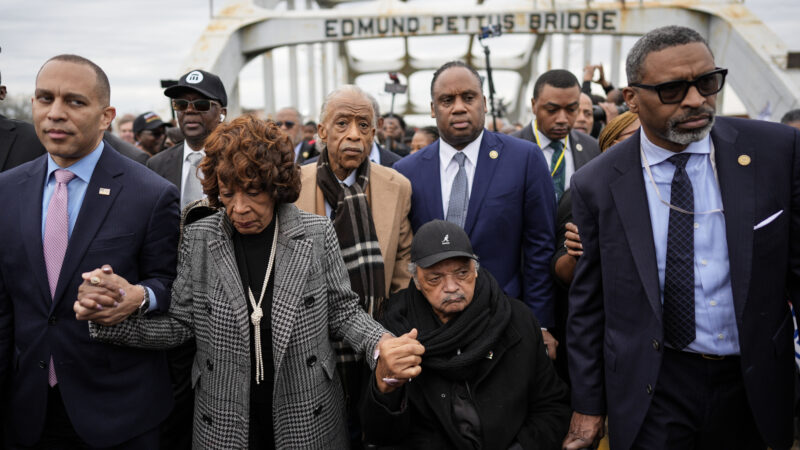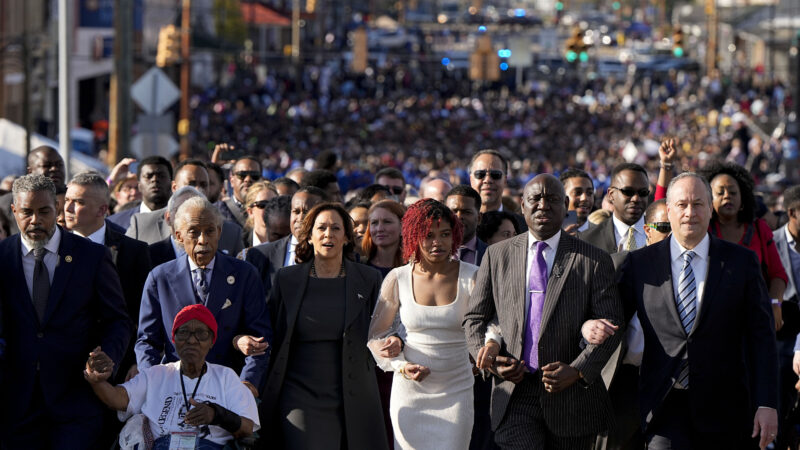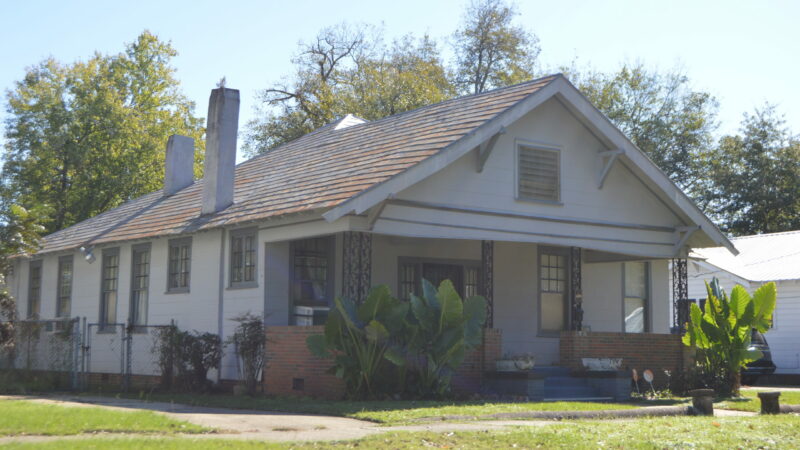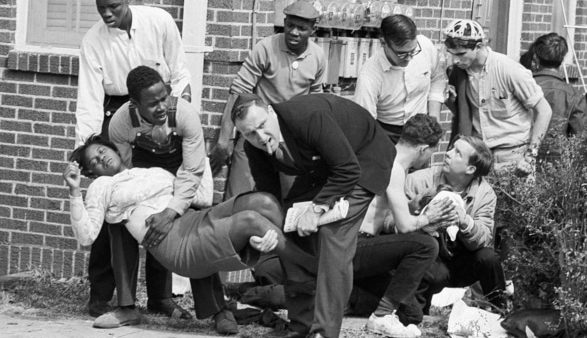Bloody Sunday
‘Lullaby for the Grieving’: Alabama’s poet laureate on her journey through loss and hope
Ashley M. Jones was on a roll. It was 2021 and she had just been named the youngest and first Black poet laureate in Alabama. Soon after, her father died without warning.
‘Bloody Sunday’ 60th anniversary marked in Selma with remembrances and concerns about the future
Selma on Sunday marked the 60th anniversary of the clash that became known as Bloody Sunday. The attack shocked the nation and galvanized support for the U.S. Voting Rights Act of 1965. The annual commemoration paid homage to those who fought to secure voting rights for Black Americans and brought calls to recommit to the fight for equality.
Kamala Harris leads Bloody Sunday memorial as marchers’ voices ring out for voting rights
Harris joined those gathered at the foot of the Edmund Pettus Bridge, where voting rights activists were beaten back by law enforcement officers in 1965. The vice president praised the marchers' bravery for engaging in a defining moment of the civil rights struggle.
House where King planned Alabama marches moving to Michigan
The role the Jackson House played was integral to the Civil Rights Movement, so a family member contacted the The Henry Ford Museum near Detroit about a year ago to ask if it would take over the preservation of the Jackson House and its legacy.
How this year’s Selma Bridge Crossing could mark a community renaissance
President Biden visits Selma for the 58th anniversary of "Bloody Sunday." Residents there are still recovering from tornadoes that ripped through the city in January.
Biden to visit Selma for voting rights anniversary
President Joe Biden will speak for the annual remembrance of “Bloody Sunday,” the day in 1965 that police beat civil rights marchers near the Edmund Pettus Bridge.
Organizer: Efforts To Rename Edmund Pettus Bridge Must Be A Group Effort
A petition calling on Gov. Kay Ivey to rename Selma's Edmund Pettus Bridge has more than 120,000 signatures. We spoke with the Democratic strategist who started the online campaign.
Selma Civil Rights Leader Remembers Amelia Boynton Robinson
Amelia Boynton Robinson, a civil rights activist who helped lead the 1965 "Bloody Sunday" civil rights march in Selma, died Wednesday. She was 104. Boynton Robinson began her activist career in the 1930 championing voting and property rights for blacks in rural Alabama. In the 1960s, her Selma home became the headquarters for the civil rights movement there. And in 1964, she became the first black woman to run for Congress in Alabama. Longtime Selma civil rights leader Rev. F.D. Reese spoke to WBHM’s Andrew Yeager about his memories of Amelia Boynton Robinson.
Civil Rights Activist Amelia Boynton Robinson Dies At 104
Amelia Boynton Robinson, a civil rights activist who nearly died while helping lead the 1965 Selma march on "Bloody Sunday," championed voting rights for blacks and was the first black woman to run for Congress in Alabama, has died. She was 104.

